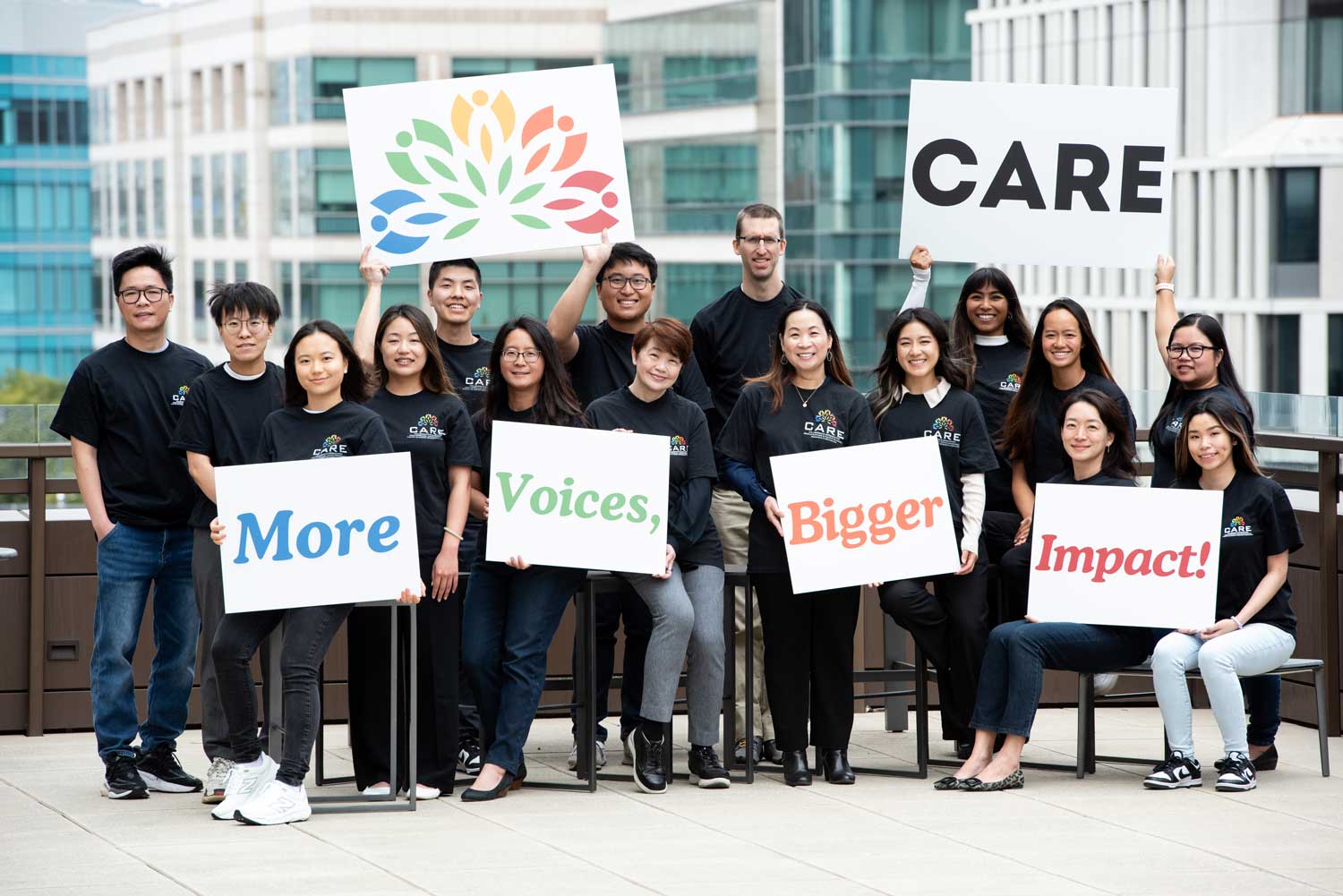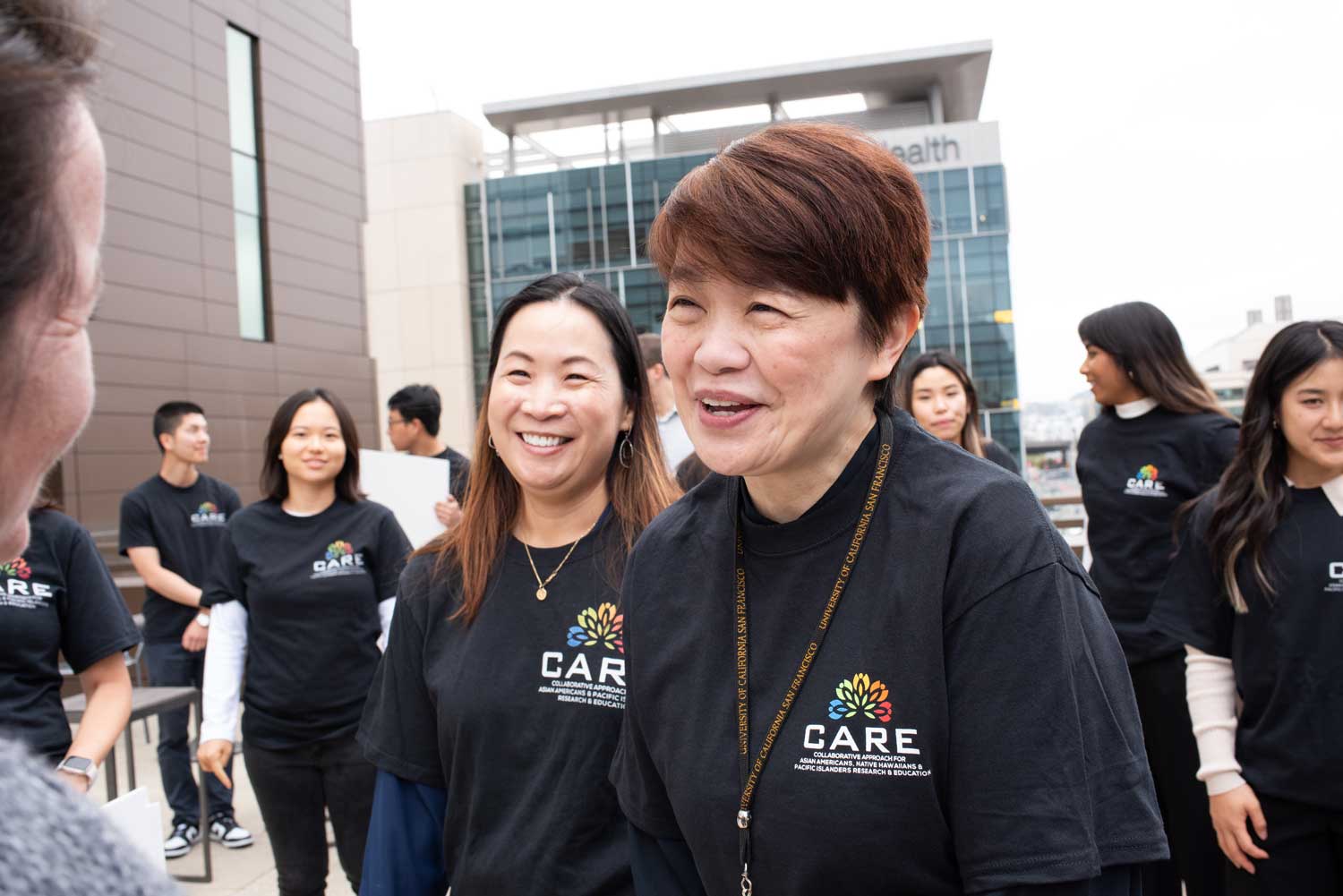
A UC San Francisco-based research registry that has already recruited more than 10,000 Asian American, Native Hawaiian and Pacific Islander participants has received $16 million in federal funding to double its efforts and expand research into this growing but underrepresented population of the U.S. population.
The new project builds upon the existing CARE registry , for Collaborative Approach for Asian Americans, Native Hawaiians and Pacific Islanders Research and Education, which launched in October 2020.
In this new phase, CARE aims to add 10,000 new participants, include more languages and further the understanding of health conditions across the diverse communities.
The researchers believe the registry remains the first and only research registry in the country that is solely dedicated to Asian American and Native Hawaiian, and Pacific Islander (AANHPI) populations. By connecting participants to research, it can increase their voice and representation.
"We look forward to not only recruiting an additional 10,000 participants but continuing to engage with our enrolled CARE participants about the importance of research participation." said Van Ta Park , PhD, MPH, founder and one of three multiple principal investigators for CARE, and a professor at UCSF School of Nursing in the Department of Community Health Systems. "With this new support, CARE will expand nationally, and we look forward to continuing our impactful work with both community and academic partners. We need to be at the table to ensure research findings are relevant and beneficial to our communities."

Inclusion of underrepresented voices in research
Asian Americans are the fastest growing racial and ethnic group in the United States and comprise nearly 8% of the population. Yet less than 1% of funding from the National Institutes of Health was devoted to AANHPI research between 1992 and 2018, according to a 2019 paper published in JAMA Network Open .
CARE is more than just a research registry. It stands as our commitment to inclusivity and representation."
In response to this significant gap, UCSF launched the CARE registry with $3.3 million in funding from the National Institute on Aging, in partnership with UC Davis, UC Irvine, the National Asian Pacific Center on Aging, the International Children Assistance Network and more than 20 other partners serving diverse AANHPI communities in California.
With the new $16 million grant from the NIA, CARE will not only double its participants but work to retain and continue to connect current registrants with research studies that concerns health issues across the lifespan. Additionally, CARE will reach out to less represented AANHPI subgroups within the CARE registry such as Filipino, Asian Indian and Native Hawaiian populations.
"CARE is more than just a research registry. It stands as our commitment to inclusivity and representation," said Janice Tsoh , PhD, a professor in the UCSF School of Medicine in the Department of Psychiatry and Behavioral Sciences and one of CARE's multiple principal investigators. "By collaborating closely with our AANHPI community partners, we actively involve and educate community members about the importance of health research, as well as boost researchers' abilities to engage and recruit AANHPI participants."
More than 80% of CARE registry participants reported they had never participated in research prior to enrolling in CARE.
"Underrepresentation of AANHPI individuals in research is due, in part, to a lack of outreach to AANHPI communities," says Carol Dawson-Rose , PhD, FAAN, dean of the UCSF School of Nursing, where the registry is housed. "This work is leading the nation in facilitating this outreach and advancing the meaningful inclusion of AANHPI communities in health studies."
How to sign up
The registry seeks to enroll AANHPI individuals who are 18 years or older who speak and read English, Chinese (Cantonese, Mandarin), Hindi, Ilocano, Japanese, Korean, Samoan, Tagalog or Vietnamese, and are willing to be contacted to participate in health research.
What participation means
Being a part of the research registry means that you are interested in learning more about research studies, but it doesn't mean that you will have to participate in those studies. Some examples of potential research studies that CARE registry participants may get contacted about include: prevention and treatment of Alzheimer's disease and related dementias; aging-related health issues; and the health and wellness of caregivers.






